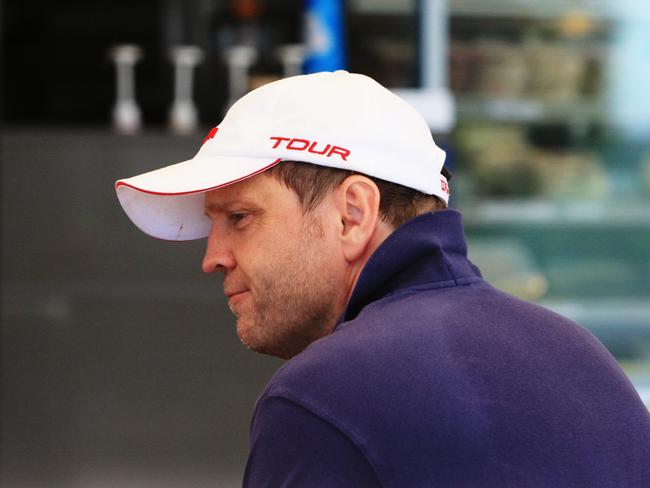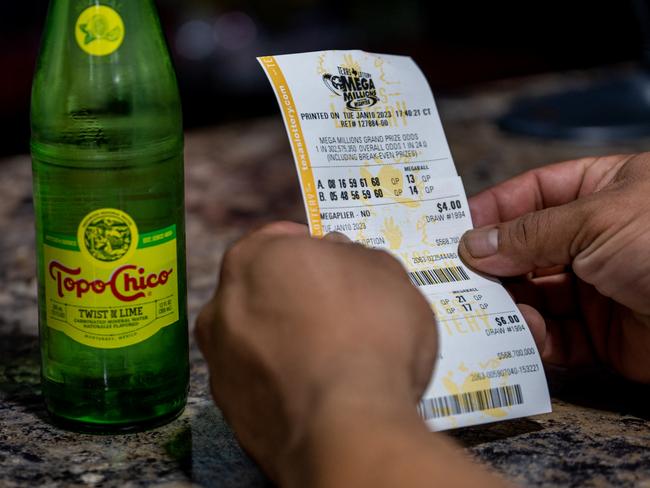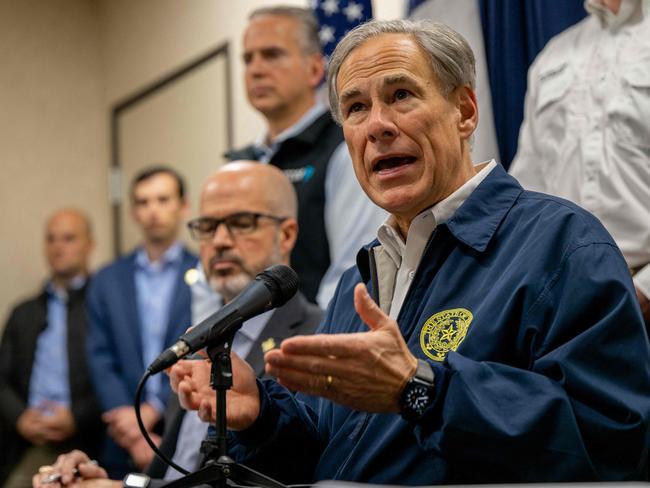Secretive Aussie gambler dubbed ‘The Joker’ takes down US lottery
A secretive Aussie gambler dubbed “The Joker” has emerged at the centre of a $151 million US lottery scandal.
Money
Don't miss out on the headlines from Money. Followed categories will be added to My News.
A secretive Aussie gambler dubbed “The Joker” has emerged at the centre of a $151 million US lottery scandal.
In 2023, a team of international gambling whizzes sparked outrage in Texas after scoring a monster $US95 million ($151 million) jackpot — by buying up nearly all of the 25.8 million possible combinations for $US1 apiece.
The April 22 drawing was the third largest lotto jackpot in Texas history.
After taking a lump sum payout of $US57.8 million ($92 million), the group walked away with a profit of about $US20 million ($32 million).
The prize had been claimed by a Delaware limited partnership called Rook TX, with lottery officials saying the winner had elected to remain anonymous.
News of the audacious bulk buying scheme, first broken by the Houston Chronicle late last year, sparked outrage from Texas politicians, who cried foul and even alleged corruption inside the Texas Lottery Commission.

Texas Lieutenant Governor Dan Patrick earlier this month called it “the biggest theft from the people of Texas in the history of Texas”, more than “all the bank robberies, all the train robberies in the Old West, everyone who’s stolen anything” combined.
But a lawyer representing Rook TX told The Wall Street Journal on Saturday “all applicable laws, rules and regulations were followed” and news.com.au does not suggest that anything about the scheme was illegal.
The practice of bulk buying lottery tickets is not illegal and makes headlines every few years — in 1992 a 2500-person Australian gambling syndicate headed by maths whiz Stefan Mandel won a $US27 million ($43 million) jackpot in Virginia after buying up five million tickets.
A similar scheme by Michigan retirees Jerry and Marge Selby was immortalised in the 2022 film Jerry and Marge Go Large, starring Bryan Cranston and Annette Bening.
But the scale of the Texas lottery win makes it unusual.
According to The Wall Street Journal, the operation was masterminded by Bernard Marantelli, a London banker turned bookmaker, and bankrolled by his long-time business partner Zeljko Ranogajec, a Tasmanian gambling entrepreneur once described as the world’s biggest punter.
Mr Ranogajec, also dubbed the “Loch Ness Monster” due to his rare public sightings, made his multimillion-dollar fortune alongside university mate David Walsh — who would later found Tasmania’s Museum of Old and New Art (MONA), with the backing of Mr Ranogajec — by using data analytics to identify favourable betting opportunities.

“He was nicknamed ‘the Joker’ for his ability to pull off capers at far-flung casinos and racetracks,” The Wall Street Journal writes.
In 2010, The Daily Telegraph reported Mr Ranogajec was said to employ anywhere from 30 to 100 staff in a 24-hour, seven-day-a-week operation, with an annual betting turnover of more than $1 billion across the globe.
“He goes wherever he can get set late with big bets … that means countries like Japan, England, Hong Kong, New Zealand and America,” one racing industry figure said at the time.
Approached on a Sydney street by The Daily Telegraph, the reclusive millionaire denied widespread reports that he was the world’s biggest punter. “I believe that’s absolutely untrue,” he said.
The Australian Taxation Office (ATO) came after Mr Ranogajec’s secretive Punters Club in 2012, trying to claim more than $600 million it claimed was owed. The case ended with an undisclosed settlement.
Mr Ranogajec left Australia for the UK, where in 2018 he became a key investor in ColossusBets, an online betting platform founded by Mr Marantelli, a former Deutsche Bank trader.
Another of Mr Marantelli’s companies, White Swan Data, uses teams of mathematicians to scour global betting markets for opportunities, then sells that advice to gamblers.

It was White Swan Data that first got wind of the Texas lottery draw.
As the jackpot grew towards $US95 million in early 2023, Mr Marantelli hatched the plan.
According to The Wall Street Journal, his team partnered with struggling online start-up Lottery.com, which convinced the Texas Lottery Commission to deliver dozens of ticket terminals to four locations.
There, Mr Marantelli’s associates worked nearly day and night in “sweatshop” conditions, printing 100 or more tickets per second to purchase 99.3 per cent of every possible combination of six numbers from 1 to 54.
For its part, Lottery.com collected a 5 per cent sales commission on every ticket.
Within hours of the winning numbers being called — 3, 5, 18, 29, 30 and 52 — Mr Marantelli’s team had located the ticket in a file box in one of their four workshops.
“This is a huge win for the company,” Lottery.com executive Greg Potts wrote in an internal email, noting the company would make a profit of nearly $US264,000 ($420,000) on its sales commission.
But by Monday, he was warning colleagues not to mention the success in public media statements. “This type of business is legal and compliant but is not something we publicise,” he wrote, according to The Wall Street Journal. “It is considered cheating by lottery players, and we do not want to raise attention to it.”

Dawn Nettles, a self-appointed Texas gambling watchdog, has sued Lottery.com and the winners alleging regular players have been defrauded. The defendants have not yet responded to the allegations.
Amid the outcry, Governor Greg Abbott in February directed the Texas Rangers to investigate, saying “Texans deserve a lottery that is fair and transparent for everyone”.
“If the investigation turns up information that would lead to a potential prosecution, that should be undertaken,” Mr Abbott said last month. “And if the investigation leads to, let’s say, inadequate measures that they have at the Commission, those measures need to be reformed.”
The Texas Lottery Commission has since moved to make it harder to bulk-purchase tickets, including by no longer providing low-traffic lottery outlets with extra terminals.
Speaking at a committee meeting in August, Texas Lottery Commission executive director Ryan Mindell stressed that “for decades, groups have formed to buy tickets when they believe it is advantageous for them to do so”.
“Of course, the unsuccessful ones don’t get news stories written about them,” he said.
“With modern analytical tools and large amounts of funds at their disposal, every lottery game in the country, and likely the world, will be analysed in one form or another by these types of groups.”
Mr Mindell said the Commission had “no reason to believe that that (any law) was violated here”. “The integrity of the game was not compromised,” he said.
“The selection of a winner, our draw processes, the fundamental nature of the draw game, none of these were compromised in any way. These bulk purchasing groups were legal purchasers of those tickets.”
But he said it was “also clear these activities harm the perception of the Lotto Texas game”.
“When players do not feel, rightfully or wrongfully, that they have an equal chance of winning, I believe it is appropriate to understand why and see if any changes can be made to address that perception,” he said.
Mr Mindell pointed out that “every $1 ticket for the $95 million jackpot had the exact same 1 in 25,827,165 chance of winning that jackpot”.
“If multiple people had tickets that had won that jackpot, they would’ve split the jackpot evenly,” he said.
Originally published as Secretive Aussie gambler dubbed ‘The Joker’ takes down US lottery




